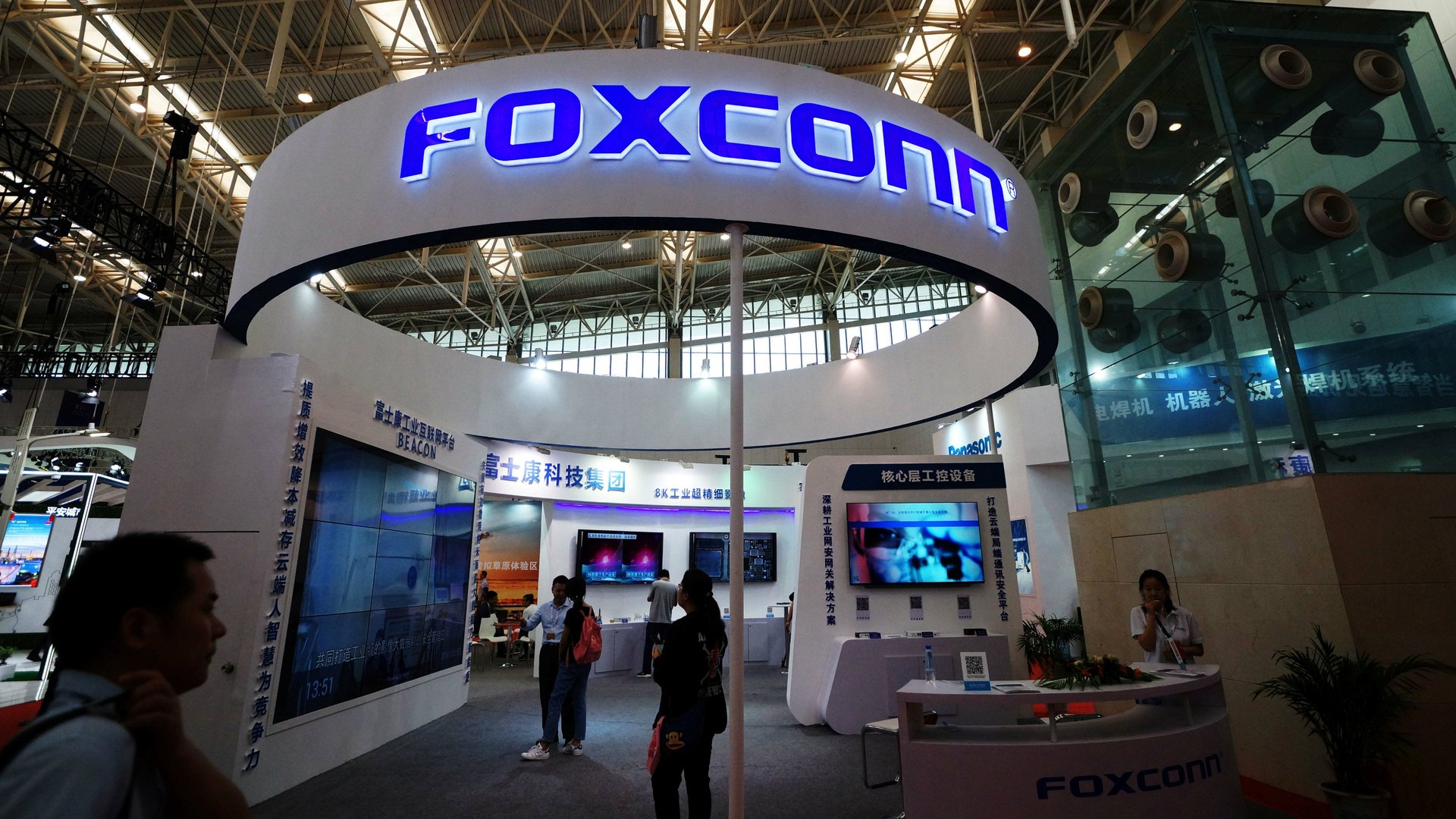All three of China’s internet giants are investing in this one Apple manufacturer
China’s top internet companies are fierce, territorial rivals, competing both for users and companies to invest in. But they’re putting all that aside to go in on one of the biggest Chinese IPOs in years.


China’s top internet companies are fierce, territorial rivals, competing both for users and companies to invest in. But they’re putting all that aside to go in on one of the biggest Chinese IPOs in years.
A filing (link in Chinese) to the Shanghai Stock Exchange registered Sunday (May 27) reveals that Alibaba, Baidu, and Tencent—China’s respective leaders in e-commerce, search, and social media—have each purchased shares in Foxconn Industrial Internet (FII), one of Apple’s major manufacturing partners for the iPhone. The investment marks a rare simultaneous investment for the companies, pointing to both their expanding businesses and relationship with Beijing.
FII is one of several units making up Foxconn Technology Group, also known as Hon Hai Precision Industry. The division says it specializes in making electronic devices, cloud service equipment, and 5G solutions, and counts Dell, Amazon, and Cisco as its clients. Its most important customer, however, is Apple—as Bloomberg Gadfly notes (paywall), the company gets about 20% to 30% of its revenue from the hardware giant, primarily by making frames and cases for iPhones. The IPO is set to be the largest China has seen in three years, giving FII a valuation of $43 billion at listing.
According to the Shanghai filing, Baidu, Alibaba, and Tencent—collectively known as BAT—will each purchase 21,786,000 shares in FII, amounting to stakes of 3.86%. Alibaba declined to comment on the investment, while Tencent and Baidu did not respond to Quartz’s messages.
While that’s small, it’s still very unusual for the companies to put money concurrently into the same firm. Not unlike how Google, Apple, and Facebook compete in the US, the three regularly step on each others’ toes in fields like mobile payments, e-commerce, and search. Startups that receive funding from Tencent are often contractually forbidden (paywall) from taking money from Alibaba, and vice-versa. So why would they all invest in FII?
Alibaba and Tencent are both pushing aggressively in cloud computing and data centers, while all three companies are investing in automotive tech. As a manufacturer, FII might prove a valuable partner.
Yet as is often the case in China, politics is likely playing a role as well. Beijing is encouraging more companies to list domestically, after watching a slew of Chinese firms list in Hong Kong and the US over the past year. Authorities appear to be positioning FII’s listing as a marquee event to induce more local IPOs. Tellingly, it was approved just over a month (paywall) after the company filed its listing application, whereas most businesses looking to list in China face wait times of one to two years.
While the BAT are China’s most high-profile tech companies, none is listed in the mainland. Another Chinese unicorn, Xiaomi, chose to list in Hong Kong over Shanghai or Shenzhen. If China’s largest tech players risk losing Beijing’s good graces because they themselves aren’t willing to list domestically, they might earn some cover by investing in a company that is.